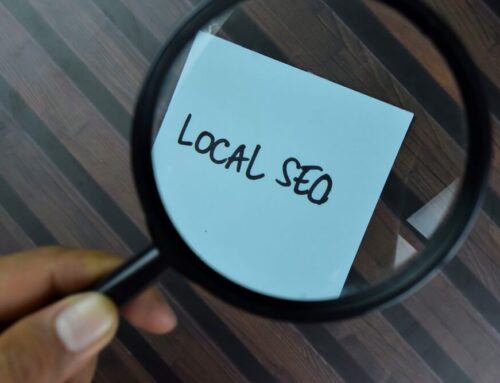After spending months (and thousands) researching and developing a new website for your business, you might expect to start generating leads and sales pretty quickly.
After all, your all bells, all whistles site looks a million times better than your competitor’s, but without the right search engine optimization strategy, your hard work will probably be in vain.
We all know that properly optimizing your website for search engines and users is essential, and the techniques that you need to follow to climb the ranks and increase conversions.
But what about when things don’t go to plan? Below, we’ve put together some of the biggest signs that your current SEO strategy isn’t working, and offer some tips on putting it right…
Organic traffic is decreasing
The whole point of an SEO campaign is to drive more traffic to your website.
When you first start out, you’ll spend the majority of your time optimizing pages, targeting keywords, creating a bank of quality content, and building backlinks from authority sites.
Over time, that SEO work encourages search engines like Google to listen up and rank your pages accordingly in their results, driving visitors to your website and your content.
Check your analytics to see your traffic over the past year. If it’s going up, you’re on the right track, and if it’s going down, the chances are there’s something wrong with your strategy.
Identify possible reasons for the drop (slacking on outreach, competitor entering your space) and look for opportunities to change your strategy. Piggyback off of competitors’ keywords and up your budget if possible so you can claw your way back to the first page of Google.
Keywords are dropping
Make sure you’re using tools like Google Search Console and SEMRush to monitor keyword rankings. All keywords fluctuate, but if yours are continually dropping, there’s a problem.
The most likely reason for keywords dropping is that your competitors are creating content that’s better than yours, optimized for the same keywords. Search for your target keywords and see what’s ranking ahead – it might be an in-depth resource or attractive landing page.
It could also be that their content has been better optimized for the keyword. Make sure your content properly integrates the right keywords on the right pages; not only in the metadata but sprinkled throughout your content naturally. Use header tags and internal links to build up your keywords, and conduct outreach to push people from other websites back to yours.

Conversions are low
If you’re managing to drive traffic to your blog posts and landing pages but you’re not generating new sales or leads on a regular basis, your SEO campaign could be to blame.
Why? It could be that you’re attracting the wrong type of traffic from search engines.
Focus on keywords that carry intent. There’s no harm in creating tonnes of resource-rich blog posts and pages that offer information to your visitors, but if they’re not interested in buying a product or service, then you’re essentially giving your knowledge away for nothing.
Rather than focusing on a keyword like “wigs”, where customers might simply be looking for tips on fitting a wig or advice on maintaining their hair, target keywords like “buy wigs online” and “discount wigs” which carry intent – those searchers are more likely to buy from you.
Analyze the keywords you’re currently ranking for and highlight ones that you should be pushing. It’s great to be ranking for as many as possible, but streamlining and focusing on some hard-hitters which will convert visitors into customers will be the key to success.
User-experience should also be considered, too. Make sure there’s a clear call to action on every page and look for ways to push people through your sales funnel at every opportunity.
People aren’t sticking around
A high bounce rate is a bad news for your website.
The metric shows what percentage of visitors leave your website without clicking through to another page. Most sites have a bounce rate of between 25% and 75%, though the lower the rate, the better. If you can’t encourage people to stick around, they’re not going to buy.
A website with good SEO will drive organic traffic through search engines and keep people online for as long as possible. “Sticky” pages like blog posts and landing pages should be so engaging and useful that consumers can’t click the back button – they have to keep reading.
Focus on improving your user experience, optimize your call to action placements, improve your site’s speed, A/B test to see which landing page is stickier, and consider adding video content to your website to engage your audience. You should also use high-quality images, add case studies and testimonials, and target abandoning users with exit intent pop-ups.
Your strategy hasn’t changed
If there’s one thing you can rely on in the world of SEO, it’s that nothing stands still for long.
Search engines regularly update their algorithms and search metrics, and marketers come up with new tactics to improve ranks and drive traffic.
That means techniques can go out of date pretty quickly, so if you’re using a five-year-old SEO handbook, you probably aren’t going to get very far.
Make sure you keep up to date with the latest SEO best practices (sites like Search Engine Land, Search Engine Roundtable, the SEMrush Blog and Content Marketing Institute) and update your own strategy accordingly as new updates are introduced.
Always be ready to learn and adapt, and consider building a “hobby website” where you can experiment with new concepts and ideas before putting them into practice on your main site.
Alternatively, it depends on a reliable SEO company that has up-to-the-minute insights into the tactics that will and won’t work. It’ll save you time and ensure you rank as highly as possible.

You don’t have goals
The biggest telltale sign that your SEO campaign isn’t working is not having goals.
There’s no point in creating content, optimizing your pages, and building links if you don’t have a clear plan of action. Throwing things at a wall to see what sticks isn’t what SEO is about.
Decide on a goal (whether that’s increased traffic, more sales, improved brand awareness, building yourself as an authority, outranking negative press articles) and stick to it. It’ll make it much easier for you to put your time and effort in the right places and deliver those results.
And review often. Set yourself time-specific goals and analyze your strategy every three or six months; if you’re still no further forward after that time, you’ll need to adopt a new plan.
SOURCE: Zudu










